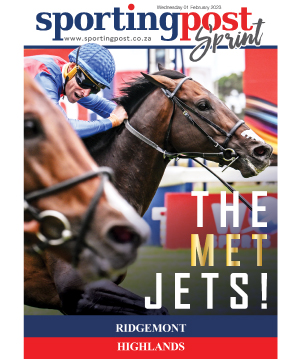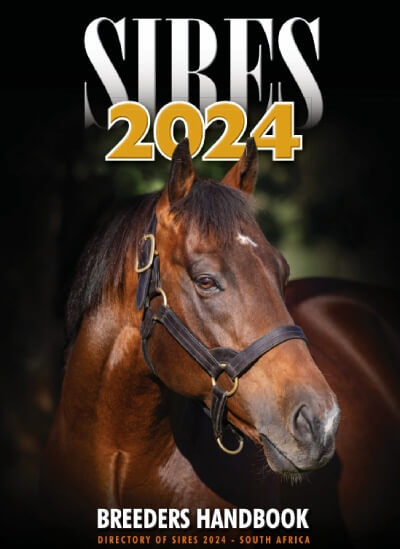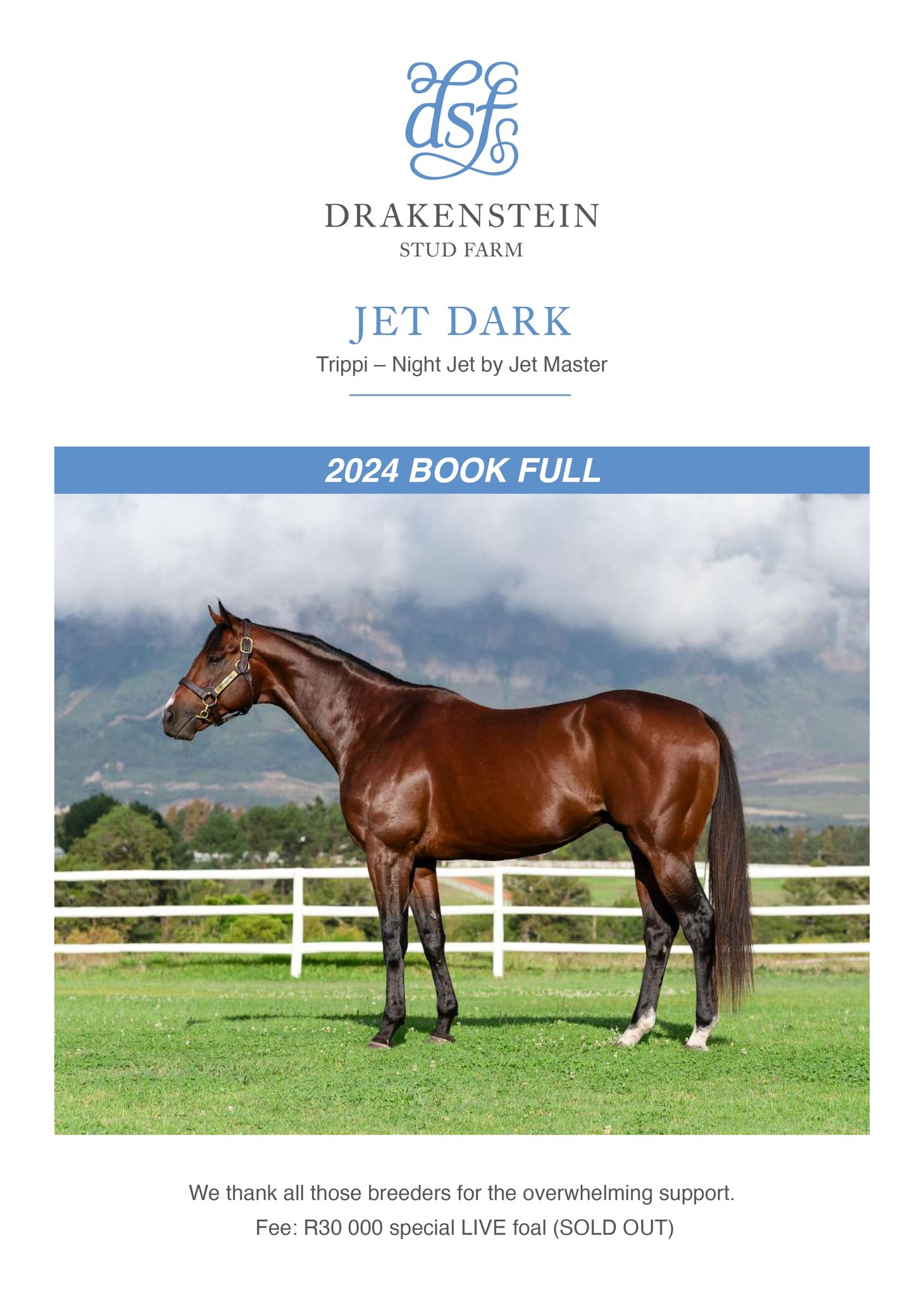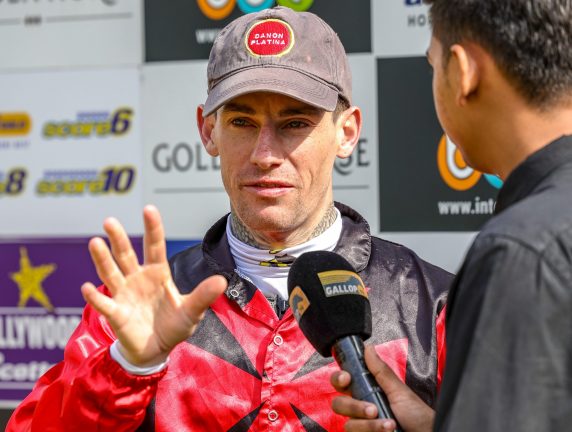‘Expectations, Reality and Greatness’ by Gary Lemke is the winner of the L’Ormarins King’s Plate Writer’s prize of a trip for two to Glorious Goodwood in August this year.
“We need never be ashamed of our tears” – Charles Dickens, Great Expectations
The morning after the day before, the sun rose over the Cape Peninsula, a glowing tribute to L’Ormarins King’s Plate weekend, the jewel in the annual Cape Racing crown. Once again, it presented a perfect, cloudless blue sky. The blue that is found in the famous race’s logo, the blue that’s made the silks of Gaynor Rupert’s Drakenstein Stud instantly recognisable the world over.
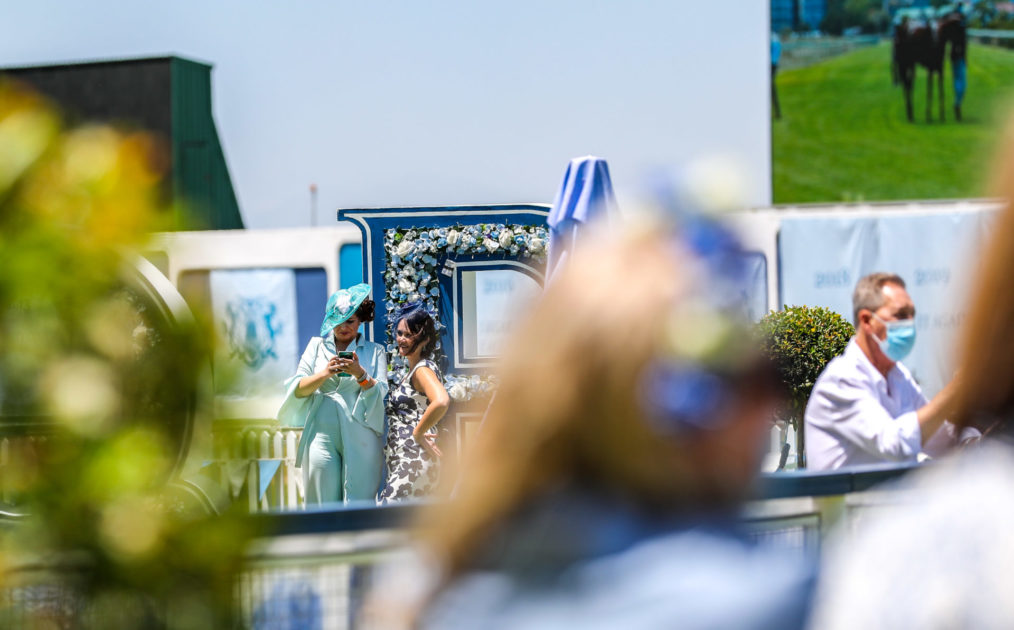
Pic – Candiese Lenferna
Sunday following Saturday. “On the seventh day God rested,” according to the Bible. Indeed.
Most of those revellers in the 4 500-strong crowd who had partied deep into the night at the culmination of another unforgettable King’s Plate race meeting at Hollywoodbets Kenilworth, would also be having a sedate start to this Sunday morning. This second Sabbath in January was a day for rest, reflection and recuperation.
Racing royalty Candice Bass Robinson, who 24 hours earlier had attended the 162nd staging of the King’s Plate in an elegant figure-hugging long white dress, was at her post at the stables. She was back in her working gear, away from the cameras and a world removed from the glitz and glamour of the day before.
That dress had been packed away, but a reminder of the Saturday could be seen on her fingernails, still painted blue in honour of L’Ormarins, Drakenstein Stud and, the star of her stable, Charles Dickens. And, if you looked really, really closely you might have seen the tell-tale signs of tears shed, eyes slightly puffy from the stresses and exertions of the previous week, or two.
“It takes a lot out of you physically and emotionally,” the head trainer said in the build-up to the event.
“The next day is when you feel it the most, not just in terms of the day itself or the race, but the build-up, the stress, everything. It will take a few days to breathe this time round. It takes its toll. Especially when the world’s eyes, and expectations, are on you. How does one recover? You don’t. Monday comes round and it’s back to work.”
The door to the entrance of Bass Racing, in Koeberg Road, Milnerton, says “Home To Pocket Power”. That great champion won four L’Ormarins Queen’s (now King’s) Plates in succession, from 2006, the year L’Ormarins first sponsored this magnificent event, went on to win the Met three times and the Durban July once.
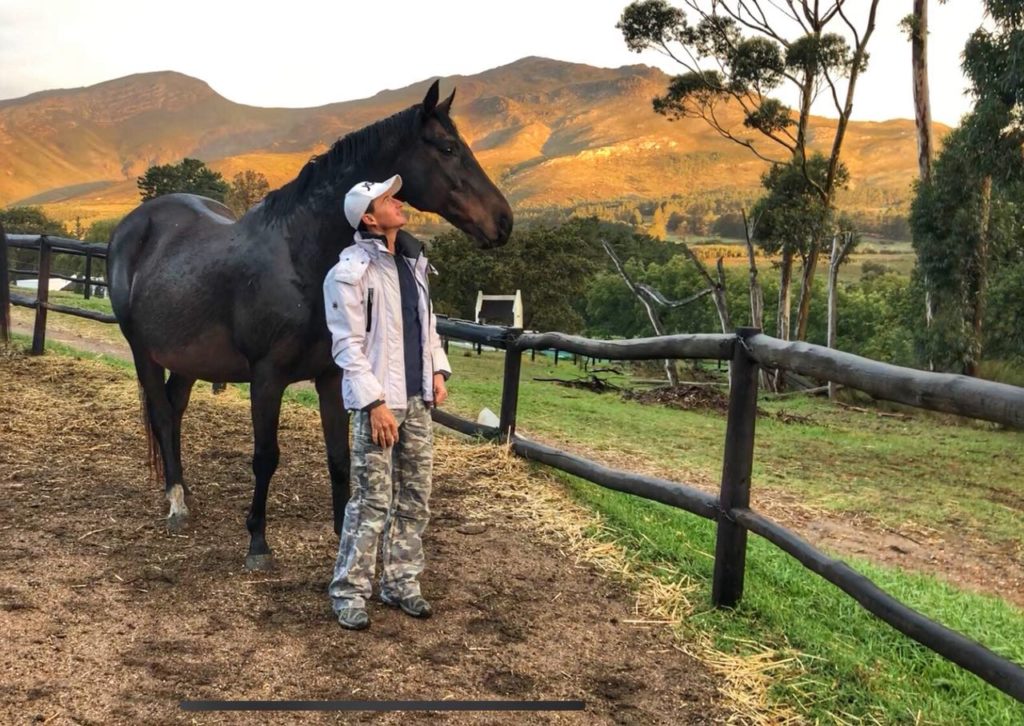
Bernard with Pocket Power (Pic – Roxy Joubert)
A biography was written about him – a rarity on the South African sporting landscape – and he went on to live out his days as a celebrity at Hemel ’n Aarde Stud near Hermanus. News of the great champion’s death on 31 July 2021, one day short of his 19th birthday, came as a shock.
Now, Bass Racing, the Home Of Pocket Power, is also the Home Of Charles Dickens.
The king is dead. Long live the king.
A day earlier the brilliant son of Trippi, out of the Dynasty mare Demanding Lady, had carried the great expectations of the racing public when attempting to remain unbeaten in seven races. He was sent out the shortest-priced favourite in the history of the country’s premier mile event, run on weight-for-age terms. His mere presence had re-awoken a slumbering public and excited them, the media and racing’s aficionados. He was the answer to so many prayers, coming in the season that online gaming company Hollywoodbets, along with businessman Greg Bortz had breathed new life into Cape Racing with huge cash injections and a tidal wave of innovation and enthusiasm.
As if written in the stars, along came the most talked-about colt in decades.
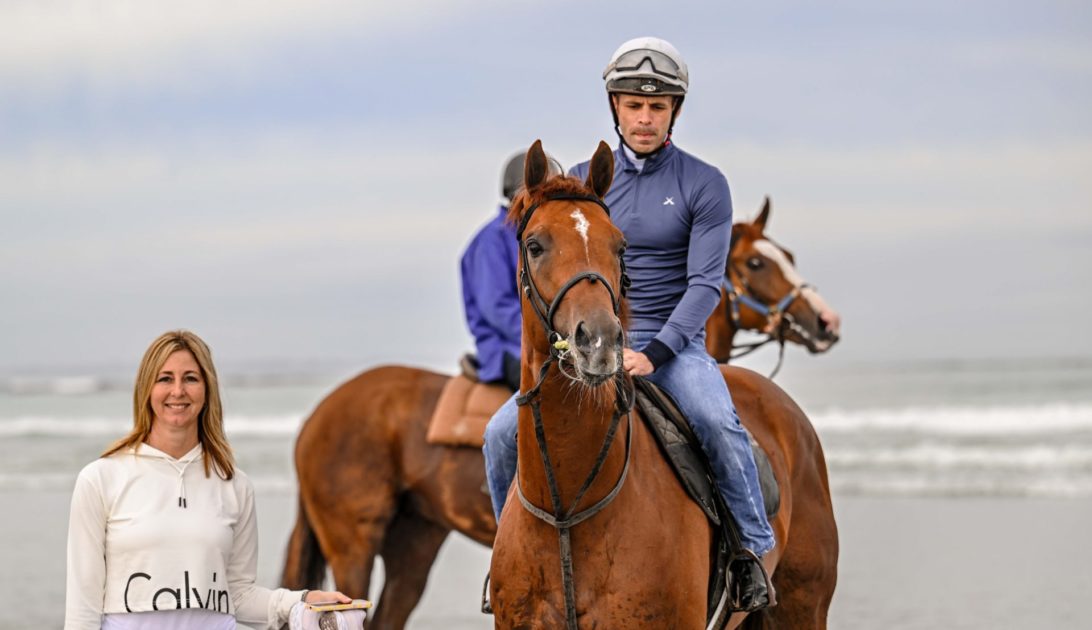
Pic – Chase Liebenberg
At Bass Racing they long referred to him as “Goosebumps”.
Charles Dickens’ reputation had preceded him before he made his debut over 1000m at Kenilworth last April. There he had beaten Yellowporscheroad by a head, with jockeys Aldo Domeyer and Bernard Fayd’Herbe going eyeball to eyeball as they crossed the line. Domeyer’s mount had won, and Fayd’Herbe had been reminded that there was no disgrace in defeat as he’d been beaten by a future superstar.
From there the word was out. Charles Dickens won his next four races by an average 2.75 lengths, getting bigger, stronger and better with every run. He went into the Grade One Hollywoodbets Cape Guineas in December odds-on favourite at 46-100. This was to be the biggest test of his career, while he was at the same time attempting to become Bass Racing’s first-ever winner of the mile which attracts the country’s best three-year-olds.
He won unextended by 4.25 lengths in a time of 97.68sec, while carrying 60kg. The manner in which he accelerated past his sophomore rivals was special, and elicited favourable comparisons with two giants of the South African turf, Sea Cottage and Horse Chestnut. Some even suggested he could be the greatest we have ever seen.

Pic – Candiese Lenferna
And that’s the thing with sport. We love to compare eras. Is Messi better than Pele was? Was a peak Tyson better than Ali? Secretariat better than Man O’War?
These sort of comparisons can never provide a definitive answer.
Suffice to say, Charles Dickens had captured the public imagination like no other thoroughbred in South Africa had done since Horse Chestnut in 1999. That particular son of Fort Wood had also won the Cape Guineas, by 7.25 lengths, before going on to take the Met by eight lengths as a three-year-old. He won two more Grade Ones and was sent to the United States, where he won his first start, before fracturing a bone in his leg. He returned home to see out his days at Drakenstein Stud, where he stood for nearly six years before dying in 2015.
Charles Dickens is also likely to return to Drakenstein Stud when his racing days are over, and the expectations of him as a stallion will be every bit as much as those following him in his spectacular racing career.
But, first things first. We need to remember that he is still a young horse, and with the benefit of hindsight, it might have been a bit much to expect him to beat fields stacked with Grade One winners three times in six weeks.
“I am what you designed me to be. I am your blade. You cannot now complain if you also feel the hurt” – Charles Dickens, Great Expectations
Aldo Domeyer’s task as jockey was to reduce his weight from 63.5kg to 55kg within two weeks for race day.

Pic – Candiese Lenferna
“If it wasn’t for Charles Dickens I’d have thrown in the white towel,” he admitted. “But this is a special occasion and he’s a special horse and he needs me. He’s been there for me throughout and now I need to be there for him. To lose the weight to be able to ride Charles has been the toughest thing to do. I hate fish but that’s all I have been eating, and I’ve been drinking a significant amount of water, cutting out all fizzy drinks. Once your mind starts the process, the body follows. But it’s been hard. I’ve done a lot of running and cycling.”
And then, his date with destiny had arrived.
Standing quietly with his lead pony, a hundred metres down from the finishing line, Charles Dickens seemed to be casting an eye over his nine rivals as they turned around from their parade and made their way to the start of the R2m L’Ormarins King’s Plate. He had the body language of a champion, sizing up the opposition.
“He’s very confident,” Robinson had said during the week. “He’s eagle-eyed, but has a laid-back temperament. He definitely has an air about him. He knows how good he is, but he’s not arrogant. He’s not a show off.”
Once the rest of the field had cantered past, Domeyer turned him around without parading past the spectators as the others had done. He was in no hurry to get to the start and in fact stopped and waited again in the shade under the trees around the back turn, some 600 metres from the starting gates.

Calling history – Rouvaun Smit
By this stage Rouvaun Smit, the experienced race caller sitting in the commentary box in the sky at the top of the grandstand, was going through his final checklist of colours as he prepared to call what had been widely referred to as “the race of the decade”. He would have long noticed that there had been a change in the colour of caps as declared in the official race programme.
Charles Dickens was wearing the familiar Drakenstein Stud blue cap, even though he was expected to race in a red one, given he was the second runner in the field representing the owners. However, special dispensation had been given to Domeyer, on No9, to wear blue and Gareth Wright, aboard Trip Of Fortune, No2, switched to the less familiar red cap.
Such was the magnitude of the occasion, the softening of the rules as a one-off given the King’s Plate was being beamed out to a global audience of millions. Those images of a superstar crossing the finishing line first and the subsequent lead-in images would be there for the fullness of time; it only seemed right that for this momentous race Charles Dickens would wear Drakenstein blue instead of red.
Smit, who had commentated on four previous Queen’s Plates, put his well-thumbed Computaform to one side and pressed his eyes to his trusty Zeiss 15×60 binoculars.
He deems it important to not have any rehearsed lines of commentary, even when calling a race such as this, where Charles Dickens was the shortest-priced favourite to ever run in the race, at odds of 2/9. In fact, had a punter wanted to bet on him, the Tote place odds showed 70 cents for every rand, which meant they would be adjusted to R1 after the race. In other words, a punter would get their money back if they backed the colt for a place, and lose their money if he didn’t finish in the first three.
As the expectant crowd eased towards their final spots, where they’d spend the next few minutes watching the race, trainer and owner were also staring intently at the television monitor. With Charles Dickens finally joining his rivals behind the gates, this is when Robinson was at her most nervous.

Pic – Candiese Lenferna
“The nerves really start on the Friday, but by then it’s all out of my hands. We’d finished all our tactical discussions on Monday already, with five days to go. Aldo would know exactly what the race plan is and we’d recapped it over and over during the week. By the Thursday my work is done. By then there’s nothing more I can do to get him race ready.”
Despite becoming the first female trainer to win what many regard as South Africa’s premier horse race, the Durban July – Robinson achieved that with Marinaresco in 2017 in her first full season since taking the reins over from her celebrated father Mike Bass – she had never been as nervous before a race as she was watching Charles Dickens in the moments before his date with destiny.
Those nerves would have been heightened by all the talk around Charles Dickens and the fact that virtually everyone on course, and millions watching live on their screens, were doing so drawn by the promise of the young champion. “I could feel my heart beating right here,” Robinson would say, tapping her chest at the base of her throat.
For her part, Drakenstein’s Gaynor Rupert had been saying throughout the week, “I’m anxious but excited in a good way.”

Pic – Candiese Lenferna
Both had already arrived at this point, 4.10pm in the afternoon, having enjoyed success earlier on in the day.
Mrs Rupert had seen the Zimbabwean jockey O’Meara Rusike wear the Drakenstein blue and white colours to victory in the first race, the Okapi Ladies International, while Robinson had won the second race with Night Tiger and the fourth race with Mr Cobbs, who had sprung a 40-1 upset in the opening leg of a Pick 6 which had swollen to a R6-million Tote pool.
However, despite playing a full part in the day’s results so far, the R2-million King’s Plate – and Charles Dickens – was, with respect to every other horse, trainer, owner, jockey and groom, the main course on a day full of delicious side dishes.
“It was the best of times, it was the worst of times” – Charles Dickens, A Tale Of Two Cities
The starter began the loading process of the 10 horses from the 1600m mark and pulses quickened.
“There are only nine people in the country who can do this job,” Smit had said during the week. “It’s a scientific fact that a horseracing commentator’s job is the second most stressful in the world, along with that of an airline pilot.”. The most stressful? “A plastic surgeon”.
Then, showtime.
“They’re in a straight line, flag goes up, racing from that 1600m mark. Russian Rock landed running, Zapatillas in second, Golden Ducat settled in third, Kommetdieding keeps him company, and on the outside we’ve got Speed Machine who’s whipping right round them all to go sit up handy, They’re being followed by Al Muthana, then comes Trip Of Fortune, a length and a half to Charles Dickens who is racing two lengths in front of Jet Dark and Linebacker is racing at the end of the line and he’s sitting 14 lengths off that leader round the turn towards the 1000m mark.”
So far, so good, the race unfolding as most would have planned, with the two favourites – Charles Dickens and Jet Dark – doing their business shielded towards the back, before waiting to be set alight once into the long home straight, albeit into the face of a testing headwind.
The crowd were glued to the TV monitors as Smit’s velvet voice filled the air. “In life the instinct is to think first before speaking. As a racing commentator it’s the opposite, speak first and think second. It’s an art,” he had said in midweek discussion.
“Russian Rock dictates the pace. At his girth we’ve got Speed Machine. A length and a half to Golden Ducat, half back to the inside Zapatillas, two lengths further back we’ve got Trip Of Fortune. Kommetdieding sits on the outside of that one. They’re being followed by Al Muthana. Then comes Charles Dickens, going to corner about 10 lengths off that leader. Jet Dark creeps up on the outside outside of him and that leaves Linebacker racing at the end of the line as they straighten up in the L’Ormarins King’s Plate with 600m left to go.
Still all going according to the script for the connections of the entire field at this stage. Robinson stared expressionless at the TV monitor, her eyes fixed on the light blue and white silks and blue cap worn by Domeyer.
“Russian Rock brings the field for home, Speed Machine is closest in second, Golden Ducat goes out for a run. Charles Dickens, under a tight hold, the light blue colours, look right, he’s starting to lift with just on 400m left … Jet Dark deeper out with Kommetdieding.”
Now the crowd found their own voice, and followers of the favourite, including owner and trainer, would have felt this was their moment as the colt made impressive visible progress.
“We’re into the final 300 and here comes Charles Dickens. He moves up on the inside of Russian Rock. Zapatillas trying to go with them.”
Noise of the crowd starts to drown out Smit. Many won’t hear what he says next.
“Up the outside we’ve got Al Muthana, who is running an absolute cracker.”
At this stage the five-year-old, sent out an 80-1 outsider in the betting but trained by a veteran who had been no stranger to winning big races, Ricky Maingard, and ridden by Fayd’Herbe, who had already won five Queen’s Plate’s, (three aboard the famed Pocket Power) was not in camera shot. This is when Smit pulled himself away from his binoculars and continued his work with his naked eye, in a seamless transition.
“That’s the thing with the angle at Kenilworth,” Smit had told me in the build-up. “From where we are sitting in the commentary box we can see what the TV cameras can’t, and they’re on a level or so below us. Do you remember when Rainbow Bridge won the (2021) Met? I saw him right on the outside running rail and was calling him home, yet the TV cameras were all on the action inside where the favourite Belgarion was running on. I could see before anyone that Rainbow Bridge was going to win.”
History was about to repeat itself.
“It’s Al Muthana with his head in front. Charles Dickens is having to dig down deep. He comes forward, he takes the lead. Al Muthana won’t go away. Charles Dickens, Al Muthana … very close between Al Muthana and Charles Dickens. I’m not going to split them. Jet Dark got going late and then came Kommetdieding.”
Three seconds elapsed. It was for a split second within that where there was a stunned silence, the silence that only a big crowd of people can make.
Jockey Domeyer knew his fate, his head bowed as he came to terms with what had just transpired, while Robinson also knew in an instant that her champion had been denied.
“Wow. We could have an upset here. The angle does favour the outside,” observed Smit.
In a packed Kenilworth Room on the fourth floor of the main grandstand, SA business supremo Patrice Motsepe had watched the race. “Did No9 win?”
“I think so,” said one onlooker. “It’s close,” said another. “I think No5 might have beaten him,” added a third.
“Oh, that’s a pity. I always back the wrong horse,” said Motsepe. Well, not quite, given that the billionaire businessman is one of Africa’s richest men and the brother-in-law of President Cyril Ramaphosa. He owns football club Sundowns, part owns Blue Bulls rugby and is president of African football. Yet his presence was another endorsement for the race day organisers to have guests of that stature attending the occasion. And, like most, he was there to support Charles Dickens.
The celebratory lead-in to the winners’ enclosure was strangely muted, with racegoers still digesting the fact that Charles Dickens had been beaten. Although, in defeat he had finished over a length clear of his two champion rivals, Jet Dark and Kommetdieding.
Remember earlier when we spoke of Charles Dickens’ debut? He’d beaten Yellowporscheroad by a neck and after they crossed the line jockeys Domeyer and Fayd’Herbe had complimented each other’s mount. Here, the roles were reversed, with Fayd’Herbe aboard a five-year-old who had lowered Charles Dickens’ colours for the first time, almost by the exact narrow margin of a neck.
“Six!” Fayd’Herbe shouted in reference to personal Queen’s/King’s Plate wins as he returned to the unsaddling enclosure aboard Al Muthana, whose Mauritian owners were punching the air in delight.

Pic – Candiese Lenferna
Fayd’Herbe was later handed a R40,000 fine for exceeding the number of times a jockey is allowed to whip a horse, just like he’d been fined R10,000 after last year’s July when he’d got Jet Dark up for second. But, when compared to a R1.187m first prize, the fine is petty cash.
There were still two races left on the programme, with Mrs Rupert enjoying small consolation 35 minutes later when the Drakenstein-bred Future Swing won a 1600m handicap run nearly two seconds slower than the King’s Plate, while the eight-year-old Crome Yellow signed off the meeting by taking the 2500m Chairman’s Cup at odds of 33-1.
The Pick 6 paid a whopping R5.4-million, with Mr Cobbs (R36.60 a Tote win in race 4) and Al Muthana (R45.90 in race 8) sending the majority of punters’ tickets into the bins.
The debates raged long into the night, an intoxicating mix of celebration, happiness, sadness, hard luck stories, tears and what-might-have-beens. Those revellers, for whom the L’Ormarins King’s Plate is the social occasion of the year, quickly put the racing to the back of their minds and lived for the moment. Times like these create lifetime memories.

Pic – Candiese Lenferna
“Nothing that we do, is done in vain. I believe, with all my soul, that we shall see triumph” – Charles Dickens, A Tale Of Two Cities
For those who felt downcast, there was little comfort in the fact that the sun would rise again in the morning. Yet it did, and it gave way to that brilliant blue sky, mirroring the colour theme of the race day and those of Drakenstein Stud.
Charles Dickens was up early as well, tucking into his food as heartily as ever. “He eats as much as any horse I’ve seen,” says his trainer.
He would probably have been wondering what all the fuss has been about. And, like the sun, he will rise again.


